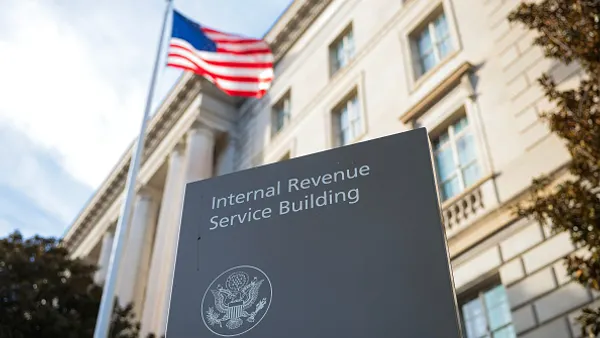Dive Brief:
- Maine Gov. Janet Mills on Thursday signed a bill (LD 1789) into law that allows candidates seeking to become certified public accountants to take the CPA exam after completing just 120 hours or college credit rather than the 150 hours previously required, according to the state legislature’s website and Trish Brigham, executive director of the Maine Society of CPAs.
- After there was opposition to broader provisions in legislation from the state’s Office of Professional & Financial Regulation, lawmakers opted to amend the bill, removing the so-called CPA pathways provisions that would have enabled candidates to be licensed with 120 college credit hours — typically equivalent to a bachelor’s degree — two years of professional experience and the passage of the CPA exam, Brigham told CFO Dive.
- “We had to make a strategic decision to abandon CPA pathways licensure to salvage the exam issue,” Brigham said in an interview, noting that Maine residents were traveling to Massachusetts and New Hampshire, where test-takers need 30 credit hours less than the 150 required in Maine, to sit for the exam. “Maine has a shortage of accountants and we did not want to continue to do that.”
Dive Insight:
Since late last year at least 19 states have passed legislation providing alternative paths to CPA licensure, typically requiring one less year of post-secondary education, to draw more people into the field and ease the accounting talent shortage. While there is growing momentum behind the initiatives, the legislation has stalled in some state legislatures this year, although CPA groups in Florida and Maine are expecting for the new bills to be introduced on the matter next year.
“When the legislature meets again in January we will reintroduce it,” Brigham said, noting that the MECPA plans to meet with OPOR officials in September to work on the issue. “We need to catch up with other states.”
Penny Vaillancourt, director of Maine’s OPOR, in written testimony provided before a public hearing on May 7 said the OPOR was neither for or against the provisions of the bill that amended the education experience required for licensure. However, they were concerned about the cost of administering a provision that would offer “practice privilege reciprocity” to CPAs licensed by other states. She also noted that a “matrix” of pathways the original bill offered might result in uncertainty for applicants and require “extensive” resources for the board that oversees license qualifications.
In an email sent to CFO Dive on Tuesday, Vaillancourt expressed support for the bill version that passed.
“While the [original] proposal may have been an effort to grow the CPA workforce, it was a significant repeal of state licensure laws requiring further technical and legal review to ensure disruptions to the existing licensure pathways did not occur,” Vaillancourt said.“The amended bill and resulting enacted legislation take an important step forward in reducing barriers to licensure by clarifying that a license applicant only needs to complete 120 hours of education in order to be eligible to take the CPA license examination.”
Keep up with CPA licensure changes with CFO Dive’s tracker on the topic here.














